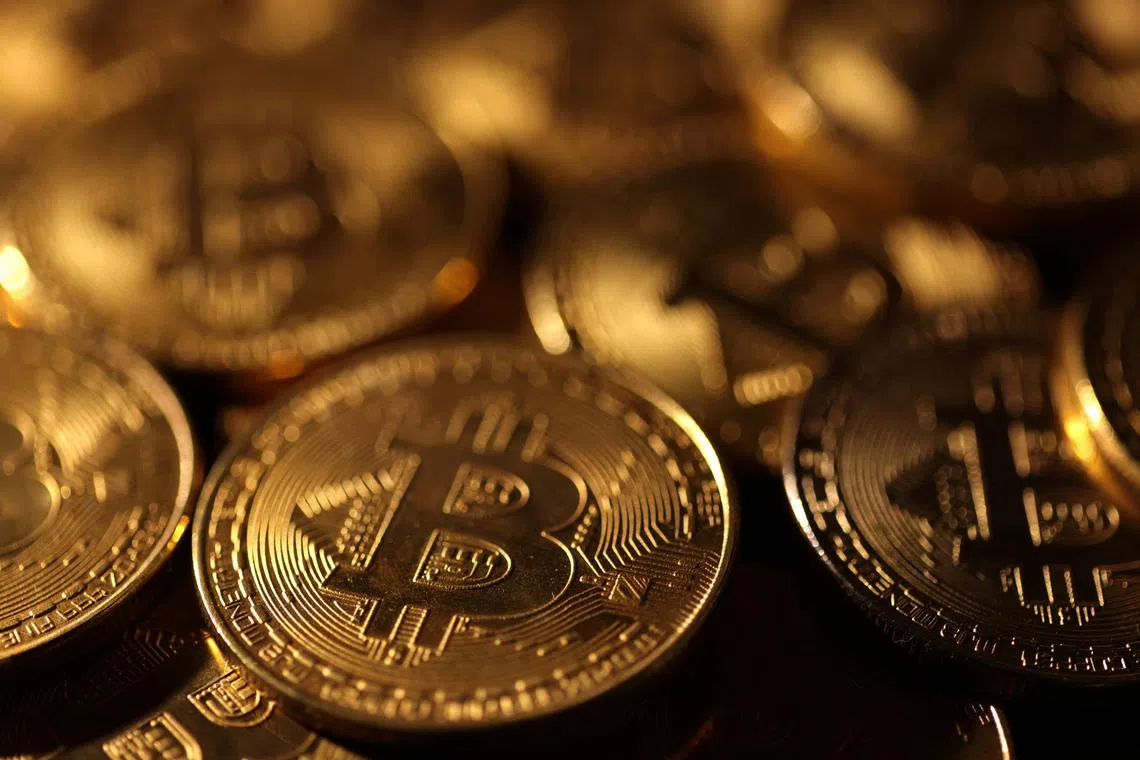Crypto founder once based in S’pore and pardoned by Trump turns focus to biohacking
Sign up now: Get ST's newsletters delivered to your inbox

Mr Arthur Hayes took a large stake in a stem cell business with clinics in Mexico and Bangkok, where he has been a regular patient for more than a year.
PHOTO: REUTERS
SAN FRANCISCO – Mr Arthur Hayes got rich, indicted and banned – all before turning 40.
He built BitMEX into one of the world’s largest crypto trading platforms, watched it buckle under regulatory and legal fire, and later saw his conviction wiped clean by a pardon from US President Donald Trump.
Now, he is back investing – not only in tokens, but in himself.
He recently took a large stake in a stem cell business with clinics in Mexico and Bangkok where he has been a regular patient for over a year, flying in for infusions aimed at extending his health span.
“I want to live as long as possible, as healthy as possible,” Mr Hayes said in a video interview. “This is the future – you’re seeing more and more countries are relaxing their regulations around the use of stem cells.”
He would not name the company because it is in the middle of a rebranding, but said he joined the board this summer.
In March, Mr Trump pardoned Mr Hayes, Mr Benjamin Delo and Mr Samuel Reed, the three co-founders of BitMEX, once the largest platform for trading crypto derivatives.
The trio were charged in 2020
The pardon changed little about his professional status, Mr Hayes said.
Even before it, the 40-year-old was living in Singapore and spending three months of each year skiing in Hokkaido, Japan.
His essays – an array of digressions on meme culture, monetary theory and markets – remain widely read in crypto circles.
One March 2023 post, titled Dust on Crust, inspired the creation of Ethena’s synthetic dollar, now the third-largest stablecoin with a market value of US$11.6 billion.
Today, Mr Hayes is riding crypto’s revival with money to spend, longevity in mind, and a taste for disruption.
Reinvigorated by an aggressively pro-crypto White House and flushed with bull market gains, crypto pioneers like Mr Hayes, who once stormed the financial system with code, are now turning their energy to domains they consider slow-moving, over-regulated, or ripe for disruption.
Whether it’s stem cells, speculative tokens, artificial intelligence-fuelled education, or publicly traded firms accumulating token holdings, the through line is the same: men with capital and conviction, who made fortunes in a largely unregulated industry, are testing how many boundaries they can redraw.
Longevity has become the final frontier for industry executives.
Ethereum co-founder Vitalik Buterin has donated millions to life-extension research.
Former Coinbase Global chief technology officer Balaji Srinivasan has backed both biotech and startup societies.
Coinbase chief executive Brian Armstrong co-founded NewLimit, a genetic engineering startup that in May raised US$130 million in a Series B round led by Kleiner Perkins.
In crypto markets, too, ambitions are expanding.
So-called digital asset treasury companies, or DATs – listed firms that accumulate crypto on their balance sheets – have surged in popularity, offering token exposure in a format that is more familiar to institutional investors.
Such entities now hold about US$110 billion worth of Bitcoin, according to CoinGecko, alongside a growing trove of smaller, less liquid tokens.
Treasury boom
The frenzy has even drawn warnings from Mr Hayes’ family office, Maelstrom, which has backed three DATs.
Its general partner Akshat Vaidya said the push may be getting out of hand, potentially putting the broader crypto rally at risk. Mr Hayes – who is an advisor to Solana-hoarder Upexi – says the real test is still ahead.
“The DATs that differentiate themselves,” he said, “are going to be the ones that are able to get the volume market cap metrics that allow passive index money managers in the United States to allocate to them.”
“If they fail at that, then I definitely could see a lot of these treasury companies trading at a discount. And it’s obviously very difficult to unwind these trades if they trade at a discount.”
Mr Trump’s own business conglomerate has embraced the treasury model too.
Trump Media and Technology Group, the loss-making company behind Truth Social, raised more than US$2 billion earlier this year to buy Bitcoin.
More recently, a little-known Las Vegas-based firm named Alt5 Sigma Corporation announced plans to raise about US$1.5 billion to buy crypto, with a focus on Trump-affiliated World Liberty Financial’s WLFI token.
Mr Trump’s sons have also helped to launch a crypto mining venture, while the president and First Lady Melania Trump have debuted their own memecoins, speculative cryptocurrencies that can skyrocket on social media hype and crash just as fast
Mr Trump’s coin is down roughly 80 per cent from a peak reached shortly after it launched.
The family’s ever-expanding digital footprint has triggered accusations of conflicts of interest. Yet to Mr Hayes, it’s simply fresh validation of the crypto-led era.
“If you have the president of the empire creating his own memecoin and it’s freely tradable, I think that gives licence to other politicians to use memecoins as a way to do campaign finance,” he said. “I love that Trump launched his own memecoin. I really don’t care what the price did.” BLOOMBERG


